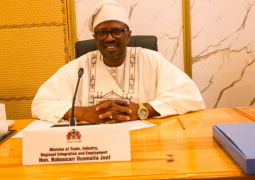The legislation, which clarifies the legal framework for granting pardons, defines how the Committee on the Exercise of Mercy is composed and details the processes by which convicts or their families can petition for clemency.
The bill builds on Section 82 of the 1997 Constitution of the Republic of The Gambia, which grants the President the power to pardon, while addressing previous ambiguities regarding the selection of Committee members and initiation of mercy applications. Under the new framework, although the composition of the Committee remains as provided in the Constitution, the bill outlines transparent procedures for selecting its members and establishes clear guidelines for application submission, review, and interviews with both convicts and victims.
The bill establishes a comprehensive, step-by-step procedure from the receipt of mercy applications at the Ministry of Justice to the final recommendations presented to the President.
The bill also gives specific qualifications for petitioners to be stipulated, ensuring that only cases meeting defined criteria are considered, and allowing for a potential re-evaluation.
With no financial implications and without the creation of additional positions, the bill is designed to operate within the existing government framework without impacting the Consolidated Fund.
The bill emphasised that this legislative update not only promises to enhance clarity and efficiency in handling appeals for mercy but also underscores a commitment to temper justice with compassion.
The bill has been read in parliament for the first time and awaits second reading for members to give their input in the subsequent sessions.




